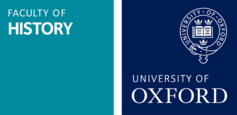The Preliminary Examination in History and Modern Languages is a single nine-month course run by the Faculty of History and the Faculty of Medieval and Modern Languages. It does not count towards your final honours degree, but you are required to pass in order to progress into the Final Honour School.
The course consists of four papers, divided into two parts: I (Modern Languages) and II (History). The formal Examination Regulations may be found in Appendix 1. The next sections briefly describe the four units, and full descriptions of each paper can be found on Canvas: https://canvas.ox.ac.uk/courses/17231
The knowledge and skills you will acquire over the whole course are outlined in Section 2 | Teaching and Learning, which also focuses on the basic skills you need to develop in the first year.
Choosing your Options
In making your choices of period or subject in the two History papers, you should be aware that:
- for pedagogical or administrative reasons (such as the wish to teach first-year students within college), some Colleges may restrict the choice of their undergraduates in one or more of British Isles History, the Optional Subject, and Approaches/Historiography/Texts/Quantification;
- the range of European and World History papers offered in the first year for Prelims differs from that available in the second and third year, examined in Finals;
- similarly, at the modern end, the British Isles History papers offered in Finals differ from those offered at Prelims.
The framework of the course is set, but there is a good deal of room within it for you to combine options in ways which reflect your needs and interests. For the Preliminary Examination, for example, you can choose your options so as to focus your work for certain terms on a particular historical period, or you may elect to give yourself as much variety as possible. Most obviously, it might make sense to dovetail your work on 20th-century literature, or Renaissance literature, or medieval literature, with study of the equivalent periods of history.
For the History papers, you might want to choose a period which fits in or will fit in with some of the literature papers you will be studying at some point in the course. Some languages include texts from the Middle Ages while for others the concentration is more modern.
If you are taking a History Paper 4 there is a great deal of choice but not all options will be available in all colleges and you should bear in mind how the different subjects are scheduled in the History course. For example, lectures and teaching for the History of the British Isles tend to be provided in Michaelmas Term while those for European and World History papers are provided in the Hilary Term. The Optional Subject is taught in the Trinity Term. ‘Foreign Texts’ are usually taught over Michaelmas and Hilary. Language and literature tend to be taught across all three terms. It is important that teaching is organized across the three terms to equalize the load as much as possible. For example, the experience of some students has been that choosing the History Optional Subject can lead to a heavy work-load in Trinity Term, when you also need to think about revision for the Preliminary Examination. Consider your options and the spread of your workload carefully in consultation with your tutors in both subjects. Do not assume that they will be aware of your obligations to the other subject in any particular term.



